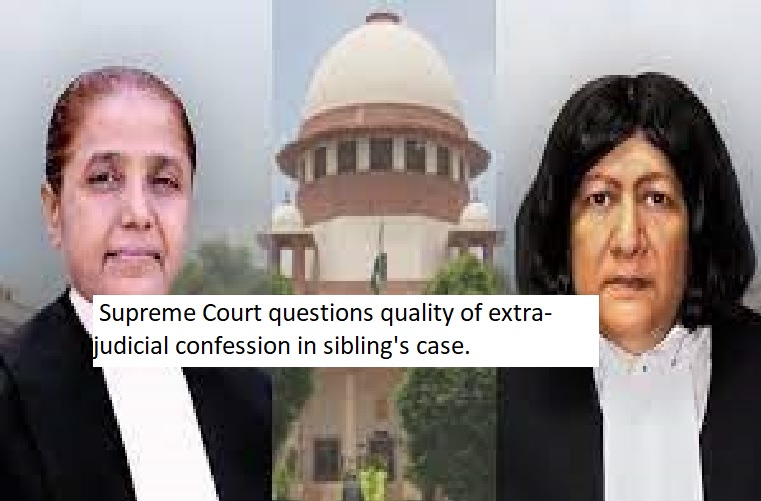


In a recent legal development, the Supreme Court rendered a significant judgment while acquitting a defendant in a murder case. Central to this ruling was the assertion that the evidence provided by individuals who are witness to extra-judicial confessions must meet a standard of sterling quality. The Court's discerning observations shed light on the pivotal role such evidence plays in legal proceedings.
The Court, in its nuanced judgment, underscored the importance of relying on robust and reliable evidence, particularly when it comes to extra-judicial confessions. Extra-judicial confessions, or statements made by a party outside the formal legal proceedings, can be crucial in criminal cases. However, the Court recognized the inherent risks associated with such evidence and emphasized the need for a stringent standard to ensure its credibility.
"When prosecution relies upon the evidence of extra-judicial confession, normally, the Court will expect that the evidence of the persons before whom extra-judicial confession is allegedly made must be of sterling quality," stated the Court. This pronouncement reflects the judiciary's commitment to upholding the integrity of legal proceedings and ensuring that justice is served based on reliable and trustworthy evidence.
The Court's emphasis on the quality of evidence in cases involving extra-judicial confessions stems from the recognition of the potential pitfalls associated with such statements. Unlike testimony given in a formal legal setting, extra-judicial confessions are made outside the purview of the courtroom, often in less controlled environments. This makes it imperative to scrutinize the circumstances under which these confessions occur and the individuals serving as witnesses.
In dissecting the intricacies of this legal principle, the Court acknowledged that the reliability of extra-judicial confessions hinges not only on the veracity of the confessor but also on the credibility of those who serve as witnesses to these confessions. The Court's scrutiny extends beyond the content of the confession itself to the individuals privy to it, recognizing that their testimony must withstand rigorous examination.
The judiciary's cautious approach to extra-judicial confessions is rooted in the understanding that such statements can be susceptible to various influences, including coercion, duress, or even misunderstandings. In light of these potential challenges, the Court's insistence on sterling quality evidence ensures that convictions or acquittals based on extra-judicial confessions are founded on a solid evidentiary foundation.
Furthermore, the Court's observations highlight the need for a meticulous evaluation of the circumstances surrounding extra-judicial confessions. Factors such as the relationship between the confessor and the witness, the setting in which the confession takes place, and the absence of any external pressure are crucial considerations. By emphasizing the importance of sterling quality evidence, the Court aims to instill confidence in the judicial process and safeguard against miscarriages of justice.
In essence, the recent Supreme Court ruling serves as a judicial benchmark, signaling the judiciary's commitment to maintaining the highest standards of evidence in criminal proceedings. The call for sterling quality evidence in cases involving extra-judicial confessions reflects a broader commitment to the principles of fairness, justice, and the rule of law. As the legal landscape continues to evolve, such pronouncements contribute to the jurisprudential discourse and shape the contours of criminal justice in the jurisdiction.
TAGS: Supreme Court Murder case Acquittal Extra-judicial confession Sterling quality evidence Legal proceedings Credibility Criminal cases